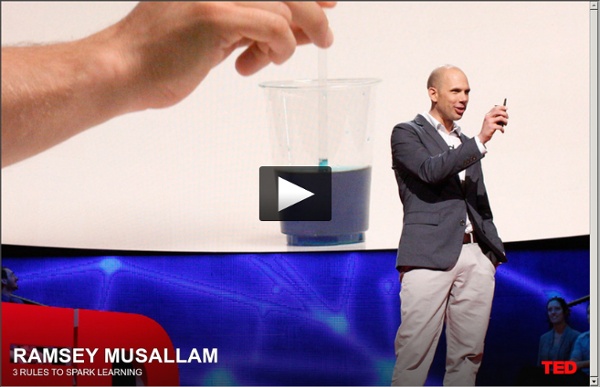



Developing 21st Century Critical Thinkers | Teaching Strategies | Mentoring Minds As we venture into the 21st century, we as a society, are faced with more innovation and challenge than ever before. We now live in an interconnected world, where the Internet and global communications are simultaneously uniting and isolating us as a society. How do we raise critical thinkers to best face the challenges that face our modern society? Click here to download an 11X17 version of the "Developing 21st-Century Critical Thinkers" infographic. Embed This Image On Your Site (copy code below): #PSP2012 VIDEO – KR Sir Ken Robinson concludes the morning sessions of “Teaching and Learning at Home and at School” by inviting educators and parents to collaborate in the design of a covenant of shared principles to transform our schools. First, Robinson identifies an agenda of issues on which we need to focus as we move forward: vexing economic, cultural, and personal challenges with which our education system has not caught up. Then, Robinson asserts that our current system is incapable of dealing properly with these challenges, owing to a ‘command and control mentality’ among political leaders, and invites stakeholders at the grassroots level — in our classrooms, and in our homes — to create an agenda not just for reform, but for transformation. Further information and related resources are provided below the embedded video. To advance the presentation to key transitions, drag the slider to the indicated timeframes:
The best one to one device is a good teacher! 249 Bloom's Taxonomy Verbs For Critical Thinking Bloom’s Taxonomy’s verbs–also know as power verbs or thinking verbs–are extraordinarily powerful instructional planning tools. In fact, next to the concept of backwards-design and power standards, they are likely the most useful tool a teacher-as-learning-designer has access to. Why? They can be used for curriculum mapping, assessment design, lesson planning, personalizing and differentiating learning, and almost any other “thing” a teacher–or student–has to do. For example, if a standard asks students to infer and demonstrate an author’s position using evidence from the text, there’s a lot built into that kind of task. Though the chart below reads left to right, it’s ideal to imagine it as a kind of incline, with Knowledge at the bottom, and Create at the top. 249 Bloom’s Taxonomy Verbs For Critical Thinking
Best Education-Related Videos of 2013 I love end of year “best of” lists. My own list is what I found to be the most powerful education related videos of 2013. They all, in some way, address the mind, heart, and spirit of education. Each touched me in some way to help illuminate the purpose and core of education. Rita Pierson: Every kid needs a champion Favorite Quote: Every child deserves a champion – an adult who will never give up on them, who understands the power of connection, and insists that they become the best that they can possibly be. Ken Robinson: How to escape education’s death valley Governments decide they know best and they’re going to tell you what to do. Sugata Mitra: Build a School in the Cloud We need a curriculum of big questions, examinations where children can talk, share and use the Internet, and new, peer assessment systems. Malala Yousafzai United Nations Speech 2013 Dear brothers and sisters, we want schools and education for every child’s bright future. Hackschooling makes me happy Quote: Like this:
savoir ou savoir-faire? This sentence has five words. | kunjulam This sentence has five words. Here are five more words. Five-word sentences are fine. Like this: Like Loading... John Hattie – Why Are So Many Of Our Teachers And Schools So Successful? John Hattie – Why Are So Many Of Our Teachers And Schools So Successful? I wanted to sit on this until the holidays were finished to make sure that people noticed. I’ve spoke about John Hattie on several occasions on this blog. Simply put, Hattie has done more research into the factors that can lead to student achievement than any other scholar. He is someone that we should all listen to, and many people around the world do. You see, Hattie’s research is clearly at odds with the dominant narrative of educational reformers in the United States. If you’re not familiar with Hattie’s larger body of work, I would recommend you review these two videos. If you haven’t had enough, I would recommend this interview… Or this keynote speech that he gave. Now how to we get politicians and policymakers to pay attention to this kind of research, as opposed to the ideologically-biased stuff that dominants the American conversation? Other entries I have posted above Hattie: Like this: Like Loading...